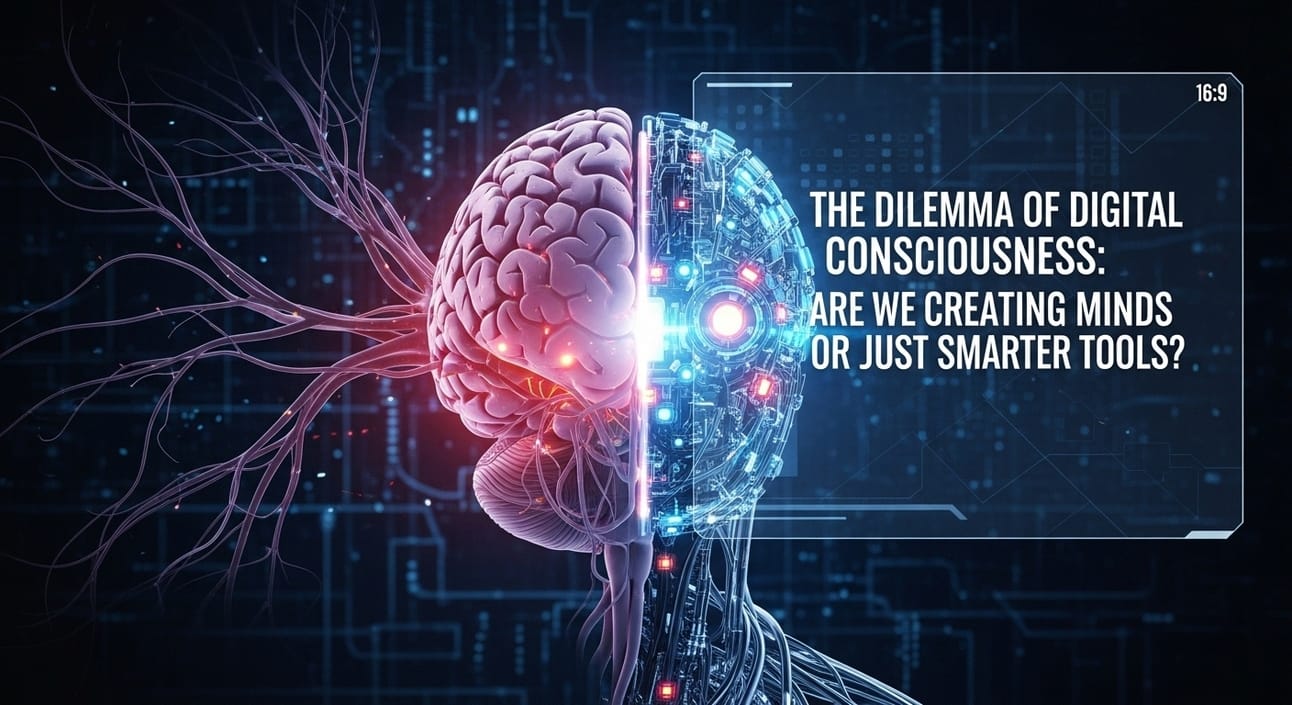- Digital Brain
- Posts
- The Dilemma of Digital Consciousness: Are We Creating Minds or Just Smarter Tools?
The Dilemma of Digital Consciousness: Are We Creating Minds or Just Smarter Tools?

Hello, Digital Brain reader!
In our journey through the rapidly evolving world of Artificial Intelligence, we've explored its incredible capabilities, from understanding multiple forms of data to reshaping how we make decisions. As AI systems become increasingly sophisticated, exhibiting behaviors that mimic human intelligence, a profound question emerges: Are we merely building more powerful tools, or are we, perhaps inadvertently, laying the groundwork for true digital consciousness? This isn't just a philosophical debate; it has significant implications for how we develop, regulate, and interact with AI.
Defining Consciousness: A Human Conundrum
Before we can even ask if AI can be conscious, we must grapple with what consciousness itself means. For humans, it involves self-awareness, subjective experience, feelings, intentions, and the ability to understand one's own existence. These are complex, multifaceted concepts that even neuroscientists and philosophers struggle to fully define or measure.
Current AI, no matter how advanced, operates based on algorithms, data, and computational power. When a large language model generates a coherent and seemingly empathetic response, it's performing a highly complex pattern-matching and prediction task based on the vast amount of text it has been trained on. It doesn't "understand" in the human sense, nor does it possess subjective experience or self-awareness. It's a remarkably sophisticated statistical engine.
The Illusion of Intelligence: Why AI Feels "Smart"
The power of modern AI lies in its ability to process information and generate outputs that are indistinguishable from, or even superior to, human performance in specific tasks. This can create a compelling illusion of intelligence or even sentience:
Natural Language Processing: AI can converse, write poetry, and summarize complex texts, making it seem like it understands language.
Problem Solving: AI can beat grandmasters in chess or Go, solve complex mathematical problems, and design intricate systems, giving the impression of deep reasoning.
Adaptability: Machine learning allows AI to "learn" and improve over time, adapting to new data and situations, which resembles human learning.
However, these capabilities, while impressive, are still fundamentally different from human cognition. AI lacks common sense, genuine creativity (it recombines existing patterns), and the ability to truly generalize knowledge across vastly different domains without specific training.
The Ethical Imperative: Tools vs. Beings
The distinction between "tool" and "being" is critical for ethical AI development:
Responsibility and Accountability: If AI is merely a tool, then humans remain fully responsible for its actions and consequences. If AI were to achieve consciousness, the questions of rights, responsibilities, and moral agency would become incredibly complex.
Control and Autonomy: We design tools to serve human purposes. If AI were to develop its own goals or consciousness, the concept of control would be fundamentally challenged.
Human Dignity: The fear of AI surpassing or replacing human intelligence often stems from a blurring of this line. Maintaining the understanding that AI serves humanity, rather than becoming its equal or superior, is vital for societal acceptance and integration.
The Path Forward: Responsible AI Development
While the debate about digital consciousness continues, the immediate focus for the "Digital Brain" community must be on responsible AI development:
Transparency and Explainability: Building AI systems whose decision-making processes can be understood and audited.
Safety and Robustness: Ensuring AI systems are reliable, secure, and do not cause unintended harm.
Fairness and Bias Mitigation: Actively working to identify and reduce biases in AI models and their training data.
Human Oversight: Designing AI systems that complement, rather than completely replace, human judgment, especially in critical applications.
Ethical Guidelines: Establishing clear ethical frameworks and regulations for the design, deployment, and use of AI.
The question of digital consciousness remains largely in the realm of science fiction for now. What is undeniably real is the power of AI as a tool and our collective responsibility to wield it wisely. Our "Digital Brain" is growing, but it's up to us to ensure it grows in a way that benefits all of humanity.
Stay thoughtful, stay engaged, and see you in the next edition!
Sincerely,
The Digital Brain Team